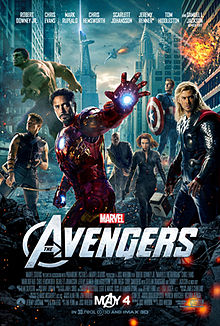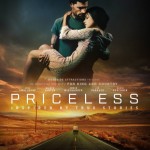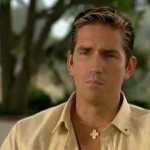 Like much of America and the world, I shelled out $10 to see “The Avengers” this weekend and I wasn’t disappointed.
Like much of America and the world, I shelled out $10 to see “The Avengers” this weekend and I wasn’t disappointed.
Writer/Director Joss Whedon managed to take what could have been an unwieldy superhero story with a lot of characters – and turn it into an entertaining, funny, action-packed film with well-integrated themes about courage and sacrifice. Unexpectedly, the movie even included a couple of moderately religious moments, both of them inspired by the primary villain, Loki, who considers himself a god (though he’s really only an egomaniacal, megalomaniacal powerful alien windbag with self-confidence issues and a helmet with horns.)
In one scene, Captain America is told that Loki and his superhero brother Thor are “like gods.” Cap’s response: “There’s only one God, ma’am, and I’m pretty sure he doesn’t dress like that.” It was a funny quip and true to character for Captain America who represents traditional values and beliefs. The script even appears to acknowledge that our modern society could use some of those “old-fashioned” ideals and values again.
The second incident has a little more depth. It occurs when Loki attacks a large group of people in Germany and forces them to kneel before him. Like many villains, Loki gets a high from subjugating people who are physically weaker than him. Pompously, he says to the crowd, “Is not this simpler? Is this not your natural state? It’s the unspoken truth of humanity: that you crave subjugation. The bright lure of freedom diminishes your life’s freedom in a mad scramble for power, for identity. You were made to be ruled. In the end, you will always kneel.”
Following this line, an elderly man in the crowd stands up bravely and says, “Not to men like you.”
Loki responds, “There are no men like me.”
The old man concludes,”There are always men like you.”
The fact that this line is spoken in Germany, harkening back to World War II’s mad tyrant, has obvious political undertones. But looking at it from a Christian viewpoint, it has religious implications as well. Kneeling before God is a traditional aspect of Christianity. Jesus humbled Himself before the Father and His followers are called to do the same. It’s an act of humility we’re supposed to willingly take on out of love as opposed to a forced act of subjugation. In Christian tradition, therefore, submitting to God’s will instead of our own is seen as a good and necessary choice that helps us fulfill our natures and our destinies. In that context, kneeling is a good thing, a freeing thing. It’s led well-known people like Mother Teresa to serve the poor all her life – and lesser-known people like Katie Davis to do the same. It doesn’t mean we check our brains at the door. Just the opposite, in fact, because discerning God’s will from the will of wolves in sheep’s clothing can take a lot of brain power.
As I was watching the scene in the movie unfold and the old man first stood up, I expected a comment from him about how human beings are never meant to follow, that we’re autonomous individuals who shouldn’t submit our own will to anyone else. That’s why the exchange surprised me. It didn’t say that at all. It just made a comment on the type of person – and perhaps unintentionally, the type of God – we’re supposed to follow.
One of the reasons I was surprised at this scene was that Joss Whedon has admitted he’s an atheist who tends to see God as a “sky bully.” This is a common misperception among atheists that springs from a superficial reading of the Bible and a narrow understanding of religious faith. Even the prolific defender of the faith, Father Robert Barron, has acknowledged that if God were actually the type of deity the new atheists believe He is, he wouldn’t want to believe in God either.
Yet here is Whedon – staying true to his character instead of his own ideology – giving a shout out to God through Captain America. Then he goes on to acknowledge there are times in life when it’s appropriate to kneel and be a follower. He probably didn’t intend to make any theological implications here because, in the film, The Avengers come to trust Captain America to be their leader and therefore follow his orders. But the scene between Loki and the elderly man should hold different implications for believing Christians.
In some of his other work like “Buffy the Vampire Slayer” and “Firefly,” Whedon has exhibited Catholic sensibilities when it comes to portraying suffering, sacrifice and even grace (though I doubt he’d call it grace). This now carries over to “The Avengers” which includes some thoughtful moments that should resonate with religious viewers.











